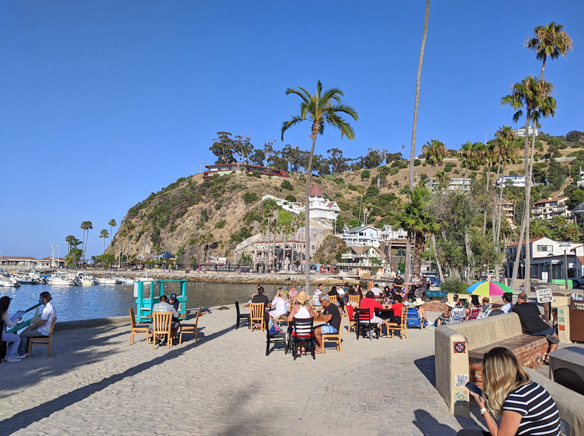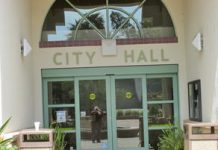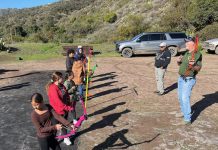In a sweeping move on Monday, July 13, Gov. Gavin Newsom ordered every county throughout the state to shut down most interior activities as California wrestles with a new surge in coronavirus cases.
The majority of activities that were available before the governor’s orders are still available, according to City Attorney Scott Campbell. He also said Newsom Newsom’s order shouldn’t have an impact on retail.
Avalon Mayor Anni Marshall said she was disappointed by the by Newsom’s announcement, but she was relieved that state hasn’t returned to restrictions on non-essential travel.
“The greatest impacts from the governor’s action that remain for us on island, are the loss of personal care services and office workspaces where unfortunately we have already seen returns to furlough of staff that had only just come fully or mostly back to work,” Luttjohann wrote.
The new Executive Order shuts down indoor restaurants, movie theaters and wineries and he also ordered bars to cease all operations, indoor and outdoor, throughout the state. Restaurants will be allowed to serve takeout or to provide outdoor dining.
City Attorney Campbell pointed out that the Avalon City Council had authorized outdoor dining. He said there has basically been an explosion of businesses with people enjoying outdoor dining. The closing of indoor dining “was the big change,” Campbell said.
“As to restaurants, we have seen some additional reopenings and three new applications for beach and/or streetside dining that are in process,” wrote Jim Luttjohann, president and CEO of the non-profit Love Catalina Island-Catalina Island Tourism Authority in a July 15 email.
“The public seems to be thoroughly enjoying the beachside dining program and it is benefiting us in social media sharing of images. Very likely by Friday’s issue, the new applicants will be operational to whatever extent they are approved (space, liability, etc.),” Luttjohann wrote.
Campbell said the Catalina Island Museum and the miniature golf course have been closed.
California retailers were not completely spared, but there doesn’t appear to be an impact on Avalon retailers.
“Anchor stores in malls that have their own outdoor entrances may operate as regular retail with their outdoor entrance only. Stores entirely enclosed in the mall (or other building) can be curbside pick up only,” according to the California Department of Public Health.
The timing was somewhat ironic, as on July 8 Newsom issued a proclamation declaring July 2020, as “California for All Small Business Month.”
Avalon’s retail shops are still open. Campbell said Avalon has no enclosed malls.
Avalon’s economic future, however, remains unclear.
“We continue to have trailing hotel and vacation rental occupancy, especially midweek and we are seeing extremely short booking windows among the reservations for transportation, activities and accommodations. Consumers are seemingly watching the daily news in order to decide what to do a day or two later,” Luttjohann wrote.
Campbell posed, then answered, the question: how did a diminished summer impact Avalon?
“It’s too early to talk about what the long-term impacts will be” of the shutdowns, Campbell said.
He said it would be interesting to see, because Avalon is severely dependent on tourists.
Marshall said boats were bringing 35% of the people who would have come to Catalina in a pre-COVID summer.
“Fall and winter events are struggling to determine viability now, as ticket sales need to be taking place in advance and ideally with as little risk of cancellation/refund as possible,” Luttjohann wrote.
She said the city was getting good reports from the Catalina Express about enforcing masks.
She said the public, both residents and visitors, were generally complying with mask mandate and physical distancing.











